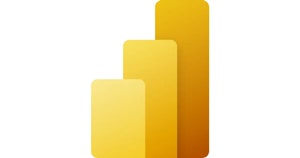What is a data analyst?
Data analyst is a title that’s common across different business verticals — so the day-to-day of two data analysts at different companies might look very different. Typically, however, a data analyst gathers data and readies it for analysis, and then analyzes it to yield business insights that the analyst will communicate to relevant stakeholders, often through data visualizations.
One of the more outwardly famous products a data analyst touches is the “Spotify Wrapped” end-of-year playlist recap. It uses the data of millions of users to personalize and visualize their listening patterns.
What are data analytics?
Data analysts work within the larger field of data analytics, though the terms data analysis and data analytics are frequently used interchangeably. There are four main types of data analytics that are important to keep in mind: descriptive, diagnostic, prescriptive, and predictive.
Descriptive data analytics
Descriptive data analytics involve the analysis of historical data to answer the question, “What happened?” In retail, companies employ descriptive data analytics for tasks like tracking inventory and sales.
Diagnostic data analytics
Diagnostic data analytics involve the analysis of data to answer the question, “Why did this happen?” In marketing, diagnostic data analytics can be employed to help understand why some campaigns are more successful than others.
Prescriptive data analytics
Prescriptive data analytics involve analyzing data to answer the question, “What should we do next?” In logistics, prescriptive data analytics are becoming more and more important as companies like Amazon seek to deliver goods to millions of customers as efficiently as possible.
Predictive data analytics
Predictive data analytics involve the analysis of data to answer the question, “What might happen in the future?” In manufacturing, companies frequently employ predictive data analytics to predict future buying patterns and manage their supply chains accordingly.
What’s the difference between data analytics and business analytics?
Another distinction that can be confusing is the distinction between data analytics and business analytics. Google “data analytics vs business analytics” and you’ll find dozens of articles all telling you the definitive difference. But the truth is, oftentimes the work being done under the name of business analytics or business intelligence is no different than what data analysts do. This holds especially true for smaller companies where employees will necessarily have a broader set of responsibilities.
At larger companies, you might start seeing a business analyst start focusing more squarely on developing insights that will directly contribute to increasing a company’s revenues, decreasing its costs, expanding its market, or entering a new one, while a data analyst’s work might focus more on the day-to-day operations of the organization. In this case, a business analyst or business intelligence expert will certainly need to have a certain level of business acumen. But even at enterprise companies, these distinctions will often not be terribly clear.
What’s the difference between data science and data analytics?
Another one we hear a lot about is the distinction between data science and data analytics. While there is also overlap between these two, we believe there is a meaningful difference:
Data analytics concerns the tools and techniques surrounding the process of data analysis. Often, but not always, data analytics professionals will use existing tools and techniques on existing databases.
Data science, on the other hand, concerns the development and deployment of new tools and techniques and new ways to gather data for analysis. The analytics involved in data science will thus likely be more advanced and will frequently involve machine learning. Oftentimes, data analysts and other data analytics professionals will employ methods and tools developed by data scientists. If you’re interested in data science, check out our articles on:
Why get a data analyst certificate or certification?
What does it mean to be a certified data analyst these days? Who are these programs for, and what can they get you? How do they improve on traditional higher education, and what’s the difference between a certificate and a certification?
Let’s start off by dispelling some myths, the first of which being that there is really any such thing as a certified data analyst. While many educational providers offer certificates and certifications, being a “certified data analyst” simply isn’t the same as being a board-certified doctor, a bar-certified lawyer, a certified financial advisor (CFA), or a certified public accountant (CPA).
These credentials just mentioned are administered centrally by official professional organizations and oftentimes carry legal weight. To achieve certification, applicants have to pass standard exams and other forms of peer review.
A data analyst or data analytics certificate or certification is decentralized, specific to the educational provider granting it, and doesn’t bring with it any affordances other than signaling to potential employers that the holder has successfully completed a course of study. Accordingly, a data analyst or data analytics certificate or certification is only as good as the organization granting it.
Certificate or Certification?
While you won’t always see a consistent difference in how these terms are used out in the field, in general a certificate attests to the completion of an educational program and a certification the satisfactory completion of an exam testing a skill or skill set. Notable examples of the later include Microsoft’s Power BI Data Analyst Associate certification, the AWS Data Analytics certification, the CompTIA Data+ certification, and the Cloudera Certified Associate Data Analyst credential.
The Upshot?
While it’s true that data analytics certificates and certifications aren’t accredited or granted by any centralized body, we mention this not to dissuade you from pursuing a data analytics certificate or certification, but rather ensure that you are fully informed about what it means to do so. These credentials, even if they are different from other professional credentials, do offer aspiring data analysts important advantages that, if fully understood, can be quite advantageous. Here, we will focus on the vetting a data analytics credential can signal to potential employers, the skill sets that accompany the credential, and the cost and convenience.
Vetting
It might hurt to read, but it’s true: employers don’t always care what certifications or certificates their data analyst applicants have. Instead, they care about what these applicants are able to do (more on this soon).
But in certain cases, one of these credentials can help a non-traditional candidate land an interview when the contents of their resume would otherwise have them tossed in the “Reject” pile.
Take, for instance, Sarah, who studied French Film and Cultural Studies at Vassar College and hasn’t yet held a data analytics job. Upon seeing Sarah’s application for a data analyst position, a recruiter would probably assume that Sarah had little to no experience in quantitative reasoning or programming and not give it another glance. But a data analytics certificate might get Sarah’s application a second glance, a skim of the cover letter, a perusal of the resume.
Or, for another example, take Thom, an IT professional looking to transition into data analytics. A recruiter would likely be happy to see Thom’s extensive experience working with computers and knowledge of programming languages, but would wonder if he was ready to step up to a heavy analytics role. Here again, a data analyst certification could help convince the recruiter that Thom might be ready — or at least ready enough to warrant a 10-minute screening call.
Skills
But these are fringe cases — the biggest advantage of a data analyst certification is the skills that are taught or certified! To get your name on that digital certificate or certification, you will have to successfully demonstrate that you have learned the materials, successfully put together your own capstone project, or pass an exam to demonstrate your handle on a data analytics skill set.
Skills taught and tested for data analytics certificates and certifications include:
Programming skills and other tools, including SQL, Python, R, Tableau, SAS Enterprise Miner, and Excel
Statistical analysis, including linear regression and predictive modeling
Key data analytics processes, including data collection, data cleaning, data mining, and data visualization
Advanced concepts, including machine learning, data ethics, big data, and introductions to data science
Soft skills, including project management and decision-making
Cost and Convenience
Many seeking to break into data analytics don’t want to spend the time or money needed for a four-year degree in statistics, computer science, or finance. With a data analyst certificate program or certification, you have another option that is substantially less expensive (often 10–100x less!) and allows them to study online on their own time. This is especially advantageous if you aren’t yet sure you want to go down the data analytics path but are willing to invest in learning more.
Alternatively, if you want to dive head-first into data analytics with a four-year degree, check out our recommendations for data analytics bachelor’s programs. If you already have an undergraduate degree and would rather seek a master’s degree than a certification, our recommendations for data analytics master’s degrees and business analytics master’s degrees will be helpful.



